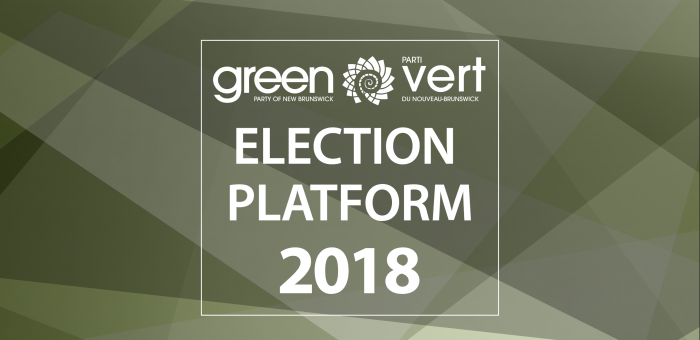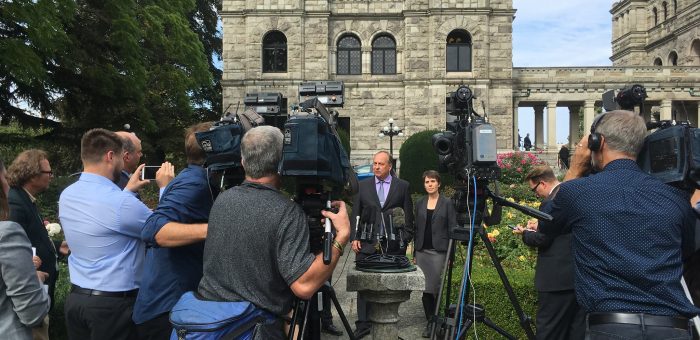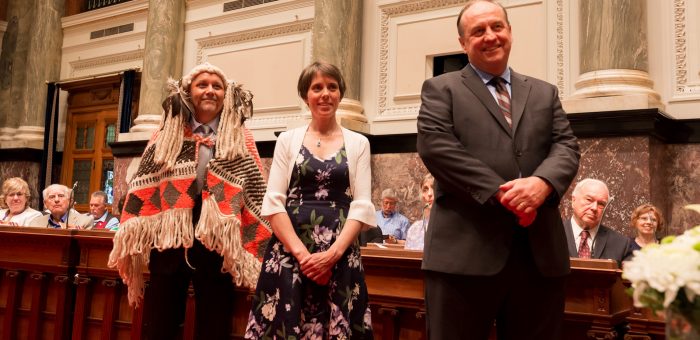Uncategorized
Memorial Avenue Rededication Ceremony
Today I had the distinct privilege and honour of speaking at the Memorial Avenue Rededication Ceremony. The ceremony commemorated the 100th Anniversary of the 1918 WW1 Armistice and the planting of London Plane-trees along Shelbourne Street in 1921 in remembrance of the sacrifices made by Greater Victoria residents during the Great War.
Below I reproduce the text of my speech.
Text of Speech
It’s a great honour for me to participate in this ceremony commemorating the 100th Anniversary of the 1918 WW1 Armistice and the Re-dedication of Memorial Avenue.
I would like to give special acknowledgement and express my sincere gratitude to the Veterans who are in attendance today.
Thank you for being here and for your service. Without you, we would not enjoy the freedoms we sometimes take for granted today.
For more than 50 years I’ve walked, biked, bused and driven under the canopy of these magnificent trees on Shelbourne Street marveling at their beauty and historic significance.
The resilient London Plane-trees we see before us were given their name because this species, formed by natural hybridization in 17th century Europe, was able to survive and thrive in the adverse conditions of London during a time when the combustion of coal left the city black with soot and smoke.
For almost 400 years, these London Plane-trees have been planted in cities around the world. Where their hardy characteristics have allowed them to flourish.
This living memorial is a fitting tribute to those who gave their lives during the First World War. It is critical that future generations understand the history and the heroic sacrifices made for which these trees serve as a commemoration.
When the idea for Memorial Avenue was presented by H.B. Thomson in February 1921, he said in a letter to the Victoria Chamber of Commerce:
“What finer memorial could one have when we are all dead than an avenue of this kind to record to future generations British Columbia’s part in the war and the heroes who died for the empire?”
The Union of BC Municipalities endorsed the plan for this provincial Memorial to be created in Victoria to honour the estimated 600 soldiers and nurses who did not return home to Greater Victoria after the war.
On Sunday, October 2, 1921, the Province of British Columbia held the Dedication Ceremony. It was opened by His Honour the Lieutenant Governor, Walter C. Nichol, with a dedicatory address, followed by an address by the Premier, the Honourable John Oliver.
The first tree was planted by His Honour the Lieutenant Governor. In the months that followed, about 75 volunteers worked tirelessly in an attempt to realize the dream of having a tree planted for every person from Victoria who gave their life in the war.
This “Road of Remembrance” was the first of its kind in Canada. Memorial Avenue on Shelbourne Street reached from Mount Douglas Park in Saanich south to Bay Street in the City of Victoria.
Saanich, Victoria and Oak Bay worked cooperatively during the planting of the Road of Remembrance. Victoria and Saanich prepared the ground for planting, Victoria donated the trees and Oak Bay undertook to do the watering. The section of Shelbourne Street from Cedar Hill Cross to North Dairy was never planted. This inspired its nickname “the Street of Unfinished Dreams”.
After centuries, these trees will stand as a lasting memorial of our collective history – a history that must never be forgotten. They will thrive here long after we are gone to honour the legacy of our ancestors and remind us of the great human cost of war.
We are in a special place when we are shaded by the canopy of these historic trees. We owe it to future generations to keep the history and memory alive as we safeguard these trees.
I would like to acknowledge the significant contribution of the Memorial Avenue Committee, together with its Chair, Ray Travers. They’ve worked hard for many years to steward this project forward and to ensure that there’s a long-term plan to care for both existing trees, as well as planting new ones in the future, as our community develops.
Volunteers play a vital role in our community. And I offer my sincere thanks to Ray Travers and the Memorial Avenue Committee for all that you have done.
The Saanich Remembers World War One project has served to help us learn more about the individuals from our community who’ve served our country and to keep their memory alive.
Thank you again for extending me the honour of being here with you today. It is a privilege for me to be able to serve the constituents of Oak Bay-Gordon Head.
Congratulations to New Brunswick Greens on electing first caucus
New Brunswick went to the polls today and elected a minority government with the New Brunswick Greens and the People’s Alliance holding the balance of responsibility. The final result was 21 seats for the Liberals, 22 seats for the progressive conservatives, 3 seats for the NB Greens and 3 seats for the People’s Alliance. 25 seats are needed for a majority government.
This is an exciting time for New Brunswick as their electorate sent a clear message that they wanted their representative to work together.
Below is the media release I issued congratulating David Coon, Kevin Arseneau and Megan Mitton on their success.
Media Release
Weaver congratulates New Brunswick Greens on electing first caucus
For immediate release
September 24, 2018
VICTORIA B.C. – Andrew Weaver, leader of the B.C. Green Party, is extending his congratulations to David Coon, leader of the New Brunswick Green Party, on the election of his first caucus. The New Brunswick Greens join the B.C. Greens and the P.EI. Greens as the first provincial Green Party caucuses in Canada.
“I extend my sincere congratulations to David and his team on the incredible growth they achieved tonight,” said Weaver.
“I also commend David and his Party for running on a positive campaign based on hope, not fear.
“Last year, there were three provincial Green representatives in office across the country. Now there are nine elected in B.C., Ontario, New Brunswick and P.E.I. This is a testament to the hard work of provincial Green Parties and the increasing resonance of our message as voters look for sensible, evidence-based policies that consider the impact of our decisions on future generations.
“The Greens and the People’s Alliance are now faced with the same balance of responsibility that our Caucus was in when the results came in in May 2017. While this burden will weigh heavily on them, minority governments are good news for voters. When political parties are forced to work together, they make better decisions. I wish them both well as they move towards establishing the agreement that will form the next government of New Brunswick.”
Weaver was the first Green politician elected at the provincial level in Canada in 2013. He was joined by B.C. Green MLAs Sonia Furstenau and Adam Olsen in 2017 when the Party doubled its popular vote share to 17%.
– 30 –
Media contact
Jillian Oliver, Press Secretary
+1 778-650-0597 | jillian.oliver@bcgreens.ca
One year later, CASA continues to deliver strong, stable government that puts people first
Today the BC Green and BC NDP caucuses celebrated the one year anniversary of the signing of our historic Confidence and Supply Agreement.
The Premier and I took the opportunity to celebrate the event at the offices of Alacrity Foundation in Victoria. This was a fitting venue since Alacrity represents a stellar example of innovation in the new economy.
Alacrity has helped bring over $225 million to B.C.’s technology ecosystem through its investor readiness program and on April 19, 2018, the Province announced that it was investing more than $711,000 over the next three years in the Alacrity Foundation of B.C.’s Cleantech Scale-Up program.
Below I reproduce the brief remarks I gave at the event as well as our joint press release.
My remarks
I am delighted to be here to celebrate the one year anniversary of the announcement that we had reached a Confidence and Supply Agreement with the BC NDP.
The 2017 election was historic for our Party. We doubled our popular vote count and tripled our seat count.
When the results came in as a minority government, we felt an enormous weight on our shoulders. We took our decision very seriously.
In the end, we decided BC needed a change. It was clear that most British Columbians wanted things to be done differently.
There was a clear desire for bolder, forward-looking policies on a range of important issues:
affordability;
environmental protection;
investments like child care and public education that will give our children the best possible future.
CASA is the result of two distinct parties coming together around shared values.
Ultimately we want the same thing:
to improve the health and wellbeing of British Columbians;
to make government more responsive to the challenges and opportunities they face in their everyday lives;
and to set our province up for success.
There have been ups and downs in the first year, but like any relationship our Agreement has required us to work through our issues and come together to find solutions that we can both support.
This is a special opportunity – under majority governments, a party can get 100% of the power with as little as 39% of the vote and push through its agenda without having to consult or collaborate with any other parties.
This has often left British Columbians feeling disconnected and like their government is not listening to their concerns. In just the first year since signing our agreement, we have worked together to:
ban big money;
reform the lobbying industry;
make historic investments in childcare and public education;
advance key elements of the BC Greens’ economic vision for the province.
And we’re just getting started.
Right now, I am hard at work with Minister Heyman to develop a climate plan that puts a bold vision for BC’s economy centred around innovation at its core.
We have a unique opportunity to make BC a leader again in climate action.
While climate change poses significant risks and challenges, there are opportunities to be had as the world transitions to the low carbon economy.
But the benefits will only flow to those who are leaders – not the last adopters.
BC was once a leader in climate action, providing an example to the world that a strong economy and bold climate action are perfectly compatible.
I am looking forward to unveiling our plan to make BC a leader once again.
There are challenges that lie ahead, but I am deeply encouraged by our ability to come together to work through our differences.
John and I both know that there is more at stake than the future of our two parties – we are united in our love of this province and we want to set it up for the best possible future.
Our caucus remains committed to doing everything we can to work collaboratively to advance more solutions so that we can deliver on our shared commitments to the people of BC
Thank you.
Joint Media Release
| For Immediate Release 2018PREM0081-001062 May 29, 2018 |
Office of the Premier Office of the Leader of the B.C. Greens |
One year later, CASA continues to deliver strong, stable government that puts people first
|
|
| VICTORIA – Premier John Horgan and B.C. Green Caucus Leader, Andrew Weaver, marked the one-year anniversary of the Confidence and Supply Agreement (CASA) at the Alacrity Foundation in Victoria.
The leaders highlighted co-operation to put people first, and investment in clean tech, innovation and a resilient economy that creates good jobs for people in B.C. — now and into the future. “When we agreed to CASA, we agreed to make democracy work for people and focus on solutions to the challenges facing British Columbians,” said Premier Horgan. “By working together, we’ve accomplished a lot to make life more affordable, improve the services people count on, and build a strong, sustainable economy that works for people. And we will keep working together, every day, to make life better for people in B.C.” The Province recently announced support for the Alacrity Foundation to help clean tech companies expand. The support for Alacrity is part of the progress made on CASA commitments to advance innovation and technology, and the collaborative work on the climate action strategy that continues. “Over the last year, we’ve shown the people of B.C. that co-operative government can lead to better, evidence-based policies that will set our province up for a bright future,” said Weaver. “Core elements of our economic platform are part of CASA. With the establishment of the Emerging Economy Task Force and the appointment of B.C.’s first innovation commissioner, the province will be better positioned to adapt and prosper in the changing economy of the 21st century.” CASA commitments on climate action were emphasized by both leaders, as they stressed the importance of decisive action and ongoing work to ensure B.C. is a climate leader. “Climate change affects everyone, and our shared future depends on making B.C. a climate leader with a strong economy that works better for people and the environment,” said Premier Horgan. “The previous government stalled climate action and failed to meet targets. We are working collaboratively towards a credible and effective climate strategy that creates opportunities for people. I’m excited about what we can achieve together.” The Government of British Columbia recently introduced legislation to update the Province’s greenhouse gas reduction targets, setting the stage for a renewed climate action strategy to be released in the fall. “There is much more to be done, but I look forward to working together to make B.C. a leader in climate action once again,” said Weaver. “We have an incredible opportunity to build a thriving economy centred around innovation, and keep our commitment to younger generations. A climate plan that is a collaborative effort by two distinct parties is a unique chance to put people ahead of politics, to think beyond the typical electoral cycle and set our province up for the brightest possible future. British Columbia has so much to offer and we can and shall be a leader in the new economy.” In addition to growing B.C.’s tech economy, supporting innovation and making B.C. a leader in climate action, CASA lists child care, team-based health care and housing as priorities. Quick Facts:
Learn more: To learn more about the CASA Secretariat and agreement, visit: https://www2.gov.bc.ca/gov/content/governments/organizational-structure/ministries-organizations/central-government-agencies/government-communications/casa To learn more about Alacrity’s BC Cleantech Scale-Up program, visit: https://www.alacritycanada.com/programs/ |
|
Contacts: |
|
| Jen Holmwood Deputy Communications Director Office of the Premier 250 818-4881 |
Jillian Oliver Press Secretary B.C. Greens 778 650-0597 |
Wildfire and flood report demonstrates need to prioritize adaptation and greenhouse gas reduction strategies
A new report was published today which examines and assesses the government’s response to the 2017 flood and wildfire events. The report, entitled: Addressing the New Normal: 21st Century Disaster Management in British Columbia was written by former MLA George Abbott and Hereditary Chief of the Sq’ewá:lxw First Nation, Maureen Chapman. It provided government with 108 recommendations that will assist it to improve existing systems, processes and procedures.
Below I reproduce the media release we issued in response to the release of the report.
Media Release
Weaver: Wildfire and flood report demonstrates need to prioritize adaptation and greenhouse gas reduction strategies
For immediate release
May 10, 2018
VICTORIA, B.C. – Andrew Weaver, leader of the B.C. Green Party caucus, says that the new report on the 2017 flood and wildfire response underscores the need for B.C. to meet our climate targets.
“Chief Chapman and Mr. Abbott have provided excellent recommendations for how the government can better support communities that are affected by wildfires and floods,” said Weaver.
“The effects of climate change are having nuanced impacts on every corner of the province. We must do everything we can to ensure British Columbians have the resources they need to respond to the ‘new normal’ of extreme weather events. In particular, the province should adopt the report’s recommendations to work more closely in partnership with First Nations and to develop better preventative measures to support communities that are vulnerable to floods and wildfires.
“These rising costs also demonstrate the urgent need to keep our commitment to the next generation to meet our climate targets. Under the Paris Agreement, countries around the world is coming together to do their part to prevent an increase in global temperatures above 2 degrees Celsius. We are seeing historic investments in cleantech and renewable energy from countries diverse as China, Germany and Saudi Arabia as the world transitions to the low-carbon economy.
“B.C. was once a leader in climate action. After enacting the carbon tax in 2008, British Columbia showed the world that a strong economy and bold climate action are perfectly compatible. By seizing the opportunity to reclaim this leadership, we can position our province to develop a thriving 21st century economy centred around innovation, sustainable value-added resource development and entrepreneurship.”
-30-
Media contact
Jillian Oliver, Press Secretary
+1 778-650-0597 | jillian.oliver@leg.bc.ca
Where’s the legislative agenda? Another miscellaneous statutes amendment act!
Today in the BC Legislature we debated at second reading Bill 7: Miscellaneous Statues Amendment Act, 2018. Such miscellaneous statute amendment bills are considered house keeping bills that contain numerous minor changes to several existing pieces of legislation. Typically these changes emerge as clarifications prompted from questions that have arisen in interpreting existing legislation.
Such bills are common. But what concerns me is that we are now half way through this legislative session and the government has yet to introduce any substantive new legislation. I was hoping for much more. The BC Greens would be thrilled to implement our ideas if the government is at a loss as to what should be done.
Below I reproduce the video and text of my brief speech.
Video of Speech
Text of Speech
A. Weaver: I rise with great pleasure to speak to Bill 7, the Miscellaneous Statutes Amendment Act. These are typically acts that we don’t debate very often, hon. Speaker, as you will know, as they’re housekeeping acts — acts that typically have highlighted a number of problems that have arisen, and legal challenges, etc., through the years.
In this particular case, we’re fixing a few things in the Interpretation Act — important things, defining where a time starts and ends for various measures — and little additions to the Crown Proceeding Act, as well as the Cooperative Association Act, the Building Act, the Fire Services Act and, of course, the Ministry of Provincial Secretary and Government Services Act.
Now, obviously, I speak in support of these changes. These changes are the culmination of a lot of hard work done by civil service legislative drafters, trying to ensure that our bills and laws are as up to date, as succinct and clear and easy to interpret as possible.
But on the broader question…. The broader question is really this. We are now halfway through this session. We are going to end at the end of this week. As it stands, the members of the opposition have brought in more bills to debate than has government.
In fact, the government has only brought in four bills. What is government doing?
We’re here to debate the Miscellaneous Statutes Amendment Act. When I sat on the other side, I used to listen to member after member in the opposition then and now government hurl abuse at the B.C. Liberals — abuse about the fact that all we were debating was miscellaneous statutes amendments acts. Sometimes, there were three such acts. Here we now have a government that’s been in power for nearly eight months, and what are we debating? We’re debating Bill 7, Miscellaneous Statutes Amendment Act.
Where’s the Family Day amendment act? We know that the Premier has stood up and said that Family Day is going to change. It’s one line that needs to change in that act. Why aren’t we debating that? We had the members opposite, when they were in opposition, bringing in bill after bill after bill for years. Where are all of those bills?
Obviously, I stand in support of this, as both sides stood in support of the Supply Act to ensure that the government was paid, but really, this is not good enough. Government has been in power for eight months, and this is the level of our debate here. Frankly, I’m tired of it, and British Columbians are tired of it. I think that we need to shape up here in British Columbia and ensure that we’re actually debating legislation about the issues that British Columbians care about.
With that, hon. Speaker, I thank you for your time, and I look forward to finally debating some other bills that we hope, at some point, will actually be brought forward to this Legislature.








